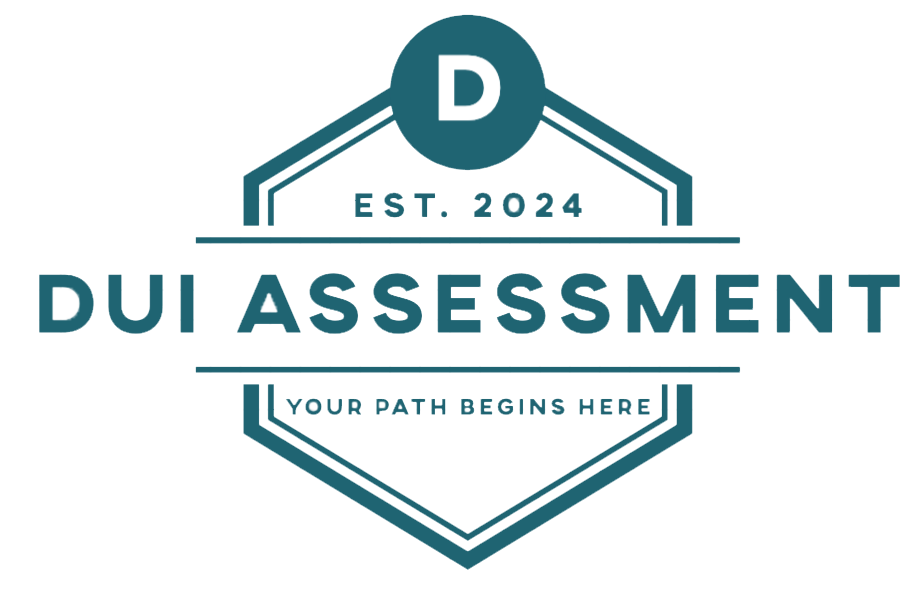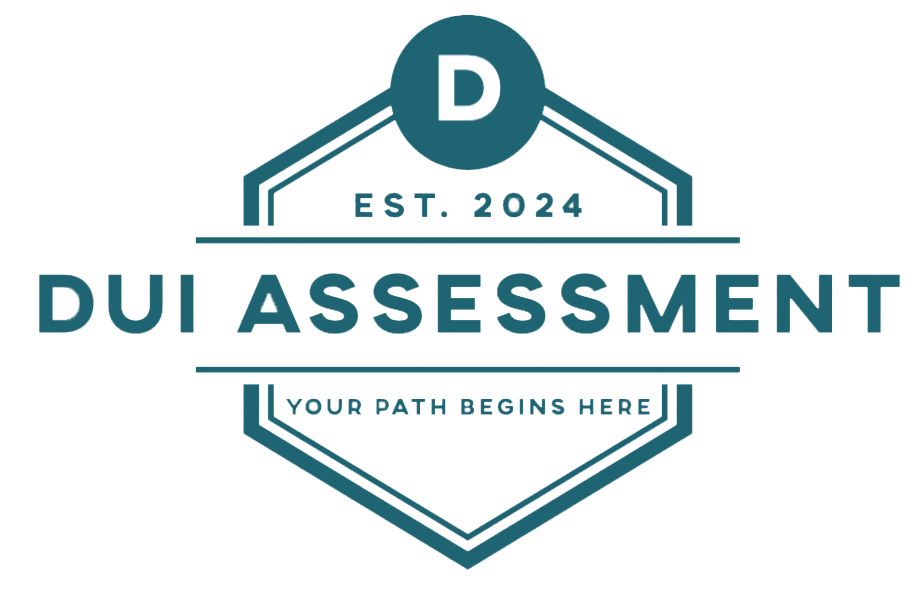If you’ve been charged with or convicted of a DUI, you’re likely facing a complex legal process with various requirements that can feel overwhelming. One of the most common mandates across virtually all states is completing a comprehensive alcohol assessment. When searching for “DUI Alcohol Assessment Near Me,” it’s crucial to understand not only what this process involves, but also why it’s required, how to find the right provider for your specific needs, and what long-term implications these assessments may have on your case and personal life.
The reality is that DUI cases have evolved significantly over the past few decades. Courts and legal systems have moved away from purely punitive approaches toward more comprehensive strategies that address the underlying factors contributing to impaired driving incidents. This shift reflects growing research showing that targeted interventions and proper assessment can significantly reduce recidivism rates and improve public safety outcomes.
Understanding DUI Alcohol Assessments: A Comprehensive Overview
A DUI alcohol assessment is far more than a simple questionnaire or brief conversation with a counselor. It’s a comprehensive evaluation conducted by a licensed mental health professional or certified substance abuse counselor to determine your relationship with alcohol and assess any potential substance abuse issues that may have contributed to your DUI incident.
This assessment serves multiple critical functions within the legal and rehabilitation framework. First, it provides the court with objective, professional insight into your alcohol use patterns and any underlying substance abuse issues. Second, it helps determine appropriate treatment recommendations that can address root causes rather than just symptoms. Third, it establishes a baseline for monitoring progress and compliance with court-ordered requirements.
The evaluation process examines your drinking patterns, personal and family history of substance use, mental health status, social support systems, employment history, and the specific circumstances surrounding your DUI incident. Mental health professionals use standardized assessment tools, clinical interviews, and sometimes psychological testing to evaluate whether you have an alcohol use disorder and determine what level of treatment, education, or monitoring might be most beneficial for your situation.
Modern assessments also consider co-occurring mental health conditions, as research shows that depression, anxiety, trauma, and other psychological factors often contribute to problematic alcohol use. This holistic approach ensures that any recommendations address the full scope of factors that may have contributed to your DUI incident.
The Legal Framework: Why Courts Require Alcohol Assessments
Understanding why courts mandate these evaluations requires recognizing the broader goals of the modern justice system’s approach to DUI cases. Rather than simply imposing fines and brief license suspensions, today’s legal framework recognizes that addressing underlying alcohol-related issues serves multiple important purposes: reducing the likelihood of future incidents, promoting public safety, supporting individual recovery and rehabilitation, and providing judges with comprehensive information to make informed sentencing decisions.
When you’re searching for “DUI Alcohol Assessment Near Me,” you’re taking a necessary step in fulfilling court requirements that have been shaped by decades of research into effective DUI intervention strategies. These assessments help judges move beyond one-size-fits-all approaches to create individualized sentences that reflect the specific risk factors and treatment needs identified in your evaluation.
The legal requirement for assessments also reflects recognition that DUI incidents often indicate underlying issues that, left unaddressed, increase the likelihood of future legal problems. Courts have found that individuals who complete appropriate assessments and follow through with recommended interventions have significantly lower rates of repeat DUI offenses compared to those who only complete basic penalties like fines or brief license suspensions.
Different states have varying specific requirements for DUI assessments, but most jurisdictions require them for first-time offenders with high blood alcohol content readings, all repeat offenders, and cases involving accidents or injuries. Some states mandate assessments for all DUI convictions regardless of circumstances, while others allow judges discretion based on case specifics.
What to Expect During Your Assessment: A Detailed Walkthrough
The assessment process typically involves much more than many people anticipate. Most evaluations require a face-to-face interview lasting anywhere from one to four hours, depending on the complexity of your situation and the specific requirements in your jurisdiction. During this time, the evaluator will conduct a comprehensive review of multiple life areas that may relate to your alcohol use and DUI incident.
Be prepared for detailed questions about your alcohol consumption patterns, including when you started drinking, how frequently you consume alcohol, typical quantities consumed, changes in drinking patterns over time, and any periods of abstinence or reduced consumption. The evaluator will also explore your family history of substance abuse, mental health issues, and any genetic predispositions that might influence your relationship with alcohol.
The professional conducting your DUI Alcohol Assessment Near Me will also examine your mental health history, including any diagnoses, treatment experiences, medications, and current psychological symptoms. This exploration helps identify co-occurring conditions that may require integrated treatment approaches.
Employment and educational history receive attention because work-related stress, job loss, or academic pressures sometimes contribute to increased alcohol consumption. The evaluator will also assess your social support systems, living situation, financial stressors, and other environmental factors that might influence your drinking behavior.
Expect detailed questions about the specific circumstances of your DUI incident, including what you were drinking, over what time period, your perceived level of intoxication, decision-making processes that led to driving, and your emotional state at the time. This information helps assessors understand whether your incident represents typical drinking behavior or an unusual circumstance.
Many assessments also include standardized questionnaires such as the AUDIT (Alcohol Use Disorders Identification Test), SASSI (Substance Abuse Subtle Screening Inventory), or other validated instruments designed to identify problematic drinking patterns and assess treatment readiness.
Types of Assessment Providers: Understanding Your Options
The landscape of assessment providers has expanded significantly as demand for DUI evaluations has grown. When looking for “DUI Alcohol Assessment Near Me,” you’ll encounter various types of professionals and organizations, each with different strengths and specializations.
Licensed Clinical Social Workers (LCSWs) often provide comprehensive assessments within private practice settings. These professionals typically have extensive training in both substance abuse and mental health issues, making them well-equipped to identify co-occurring conditions and provide holistic treatment recommendations.
Licensed Professional Counselors (LPCs) with substance abuse specializations offer another option for assessment services. Many have specific training in addiction assessment and treatment, and some focus exclusively on substance abuse-related issues.
Psychologists may conduct assessments, particularly in cases involving complex mental health considerations or when psychological testing is required to clarify diagnosis or treatment recommendations.
Specialized DUI Assessment Programs have emerged in many areas, focusing specifically on court-ordered evaluations for impaired driving cases. These programs often have streamlined processes and extensive familiarity with local court requirements, but may offer less individualized attention than private practitioners.
Community Mental Health Centers provide assessment services, often at reduced costs for individuals with limited financial resources. These organizations typically accept various insurance plans and may offer sliding scale fees based on income.
Hospital-Based Behavioral Health Programs sometimes offer comprehensive substance abuse assessments as part of their outpatient services. These settings may be particularly appropriate for individuals with complex medical histories or co-occurring health conditions.
Certified Addiction Counselors (CACs) who meet state requirements for conducting assessments represent another option, particularly in areas where other types of providers may be less available.
Finding the Right Provider: Key Considerations and Research Strategies
Location convenience is certainly important when searching for “DUI Alcohol Assessment Near Me,” but several other factors should influence your decision about which provider to choose for this critical evaluation.
First and foremost, ensure that any provider you consider is properly licensed in your state and has specific experience conducting DUI-related assessments. Different types of evaluations require different training and certification, and you want to work with someone who regularly conducts court-ordered assessments rather than someone who only occasionally provides this service.
Research the provider’s familiarity with your local court system’s specific requirements. Different jurisdictions may have preferences for certain assessment formats, particular standardized instruments, or specific information that must be included in evaluation reports. Providers who regularly work with your local courts will be more likely to produce reports that meet all necessary requirements and avoid delays or complications in your case.
Consider the provider’s approach to assessment and treatment philosophy. Some professionals take a more traditional, pathology-focused approach, while others emphasize harm reduction or motivational interviewing techniques. If you have preferences about treatment approaches or previous experiences with different therapeutic styles, discussing these considerations with potential providers can help ensure a good fit.
Ask about the provider’s typical timeline for completing assessments and submitting reports to the court. Court-ordered evaluations often have specific deadlines, and you want to work with someone who can meet these requirements without rushing through the assessment process.
Consider whether the provider offers additional services such as the recommended treatment programs, ongoing counseling, or alcohol education classes. While you’re not required to complete all services with the same provider who conducts your assessment, there can be advantages to continuity of care when appropriate.
Understanding Costs and Navigating Insurance Coverage
Assessment costs vary significantly based on multiple factors including your geographic location, the type of provider you choose, the complexity of your assessment, and local market conditions. Private practitioners typically charge between $200-$800 for comprehensive evaluations, while specialized DUI programs may offer more standardized pricing in the $150-$400 range.
Community mental health centers and other public or non-profit organizations often provide sliding scale fees based on income, making assessments more accessible for individuals with limited financial resources. These programs may charge as little as $50-$150 for qualifying individuals, though wait times may be longer than with private providers.
When researching “DUI Alcohol Assessment Near Me,” ask potential providers about their fee structure, payment policies, and whether they offer payment plans for individuals who cannot pay the full amount upfront. Some providers require full payment at the time of service, while others may allow payment arrangements.
Insurance coverage for DUI assessments varies considerably between different insurance plans and providers. Some insurance companies cover these evaluations under mental health or substance abuse benefits, while others consider them court-ordered services that fall outside covered benefits. Contact your insurance provider directly to inquire about coverage for substance abuse assessments, and be prepared to provide specific information about the type of evaluation required and the provider you plan to use.
If your insurance does cover the assessment, verify whether your chosen provider accepts your insurance plan and whether you need any prior authorizations or referrals. Some providers work directly with insurance companies to handle billing and authorization, while others require patients to pay upfront and seek reimbursement independently.
Preparing for Your Assessment: Maximizing Accuracy and Efficiency
Proper preparation can significantly impact both the quality of your assessment and the efficiency of the evaluation process. The goal isn’t to present yourself in an unrealistically positive light, but rather to ensure that the assessor has access to complete and accurate information about your situation.
Gather all relevant documentation before your appointment, including court paperwork related to your DUI case, any previous substance abuse treatment records, mental health treatment history, medical records that might relate to your alcohol use, and documentation of any medications you’re currently taking. Having this information readily available helps the assessor understand your full history and avoid any gaps or inaccuracies in their evaluation.
Prepare to discuss your alcohol use history honestly and in detail. Consider writing down information about your drinking patterns, including when you typically drink, how much you usually consume, any changes in your drinking over time, and any periods when you’ve reduced or stopped drinking. This preparation helps ensure you provide accurate information during the interview rather than trying to recall details on the spot.
Think about the circumstances surrounding your DUI incident and be prepared to discuss them openly. The assessor isn’t there to judge your decisions, but rather to understand the factors that contributed to your situation so they can make appropriate recommendations.
Consider any mental health symptoms you’ve experienced, including depression, anxiety, mood changes, sleep problems, or other psychological issues that might relate to your alcohol use or contribute to your overall situation. Many people don’t initially recognize connections between their emotional well-being and their drinking patterns, but identifying these relationships can be crucial for developing effective treatment recommendations.
The Assessment Report: Understanding Results and Recommendations
Following your evaluation, the assessor will prepare a comprehensive report that typically includes several key components: a summary of your alcohol use history and patterns, assessment of any substance use disorders, evaluation of mental health factors, risk assessment for future problems, and specific recommendations for treatment, education, or monitoring.
The diagnostic component of the report will indicate whether you meet criteria for an alcohol use disorder and, if so, the severity level (mild, moderate, or severe) based on standardized diagnostic criteria. This determination influences the types of interventions that may be recommended and can impact legal proceedings in your case.
Treatment recommendations might include various options depending on your assessment results: alcohol education classes for individuals with minimal substance abuse issues, outpatient counseling for those with moderate concerns, intensive outpatient programs for more serious problems, residential treatment for severe cases, or ongoing monitoring and support services.
The report typically goes directly to the court, your attorney, or your probation officer, depending on your specific legal situation. You should also receive a copy of the report, and you have the right to discuss the findings and recommendations with the assessor to ensure you understand what’s been recommended and why.
Common Misconceptions and Concerns About DUI Assessments
Many people approach DUI assessments with misconceptions that can create unnecessary anxiety or lead to counterproductive behaviors during the evaluation process. Understanding these common misconceptions can help you approach your assessment with more realistic expectations and better preparation.
One frequent misconception is that the goal of the assessment is to “prove” you don’t have a drinking problem or to minimize the significance of your DUI incident. In reality, assessors are trained to conduct objective evaluations based on standardized criteria and clinical judgment. Attempting to downplay your alcohol use or provide misleading information typically backfires, as experienced assessors can often identify inconsistencies or defensive responses.
Another common concern is that honest disclosure during the assessment will automatically result in recommendations for extensive or expensive treatment programs. While being honest about your drinking patterns is essential for receiving appropriate recommendations, assessors consider multiple factors when making treatment suggestions, and many people receive recommendations for relatively brief educational interventions rather than intensive treatment programs.
Some individuals worry that information shared during the assessment will be used against them in legal proceedings. While assessment reports do become part of court records, the purpose is to provide judges with information to make appropriate decisions about sentencing and treatment requirements, not to create additional legal problems.
Following Through with Recommendations: Compliance and Success Strategies
Completing your DUI Alcohol Assessment Near Me represents just the first step in a process that often extends well beyond the initial evaluation. Following through with assessment recommendations is typically required for legal compliance and can significantly impact the outcome of your case.
Treatment recommendations vary widely based on assessment findings, but may include alcohol education classes, individual or group counseling, intensive outpatient programs, residential treatment, regular monitoring or testing, participation in mutual support groups like Alcoholics Anonymous, or ongoing case management services.
Approach recommended interventions with an open mind, even if they initially seem unnecessary or excessive. Many people find that participating in recommended programs provides unexpected benefits beyond legal compliance, including improved coping skills, better understanding of factors that contributed to their DUI incident, enhanced social support, and overall improvements in life satisfaction and functioning.
Stay in regular communication with your attorney about your progress with recommended interventions, as completion of these requirements often influences plea negotiations, sentencing decisions, and probation terms. Document your participation in recommended programs carefully, as you may need to provide proof of compliance to the court or your probation officer.
Long-Term Implications and Moving Forward
The implications of your DUI assessment and any subsequent treatment extend far beyond immediate legal requirements. Research consistently shows that individuals who engage meaningfully with assessment and treatment recommendations experience lower rates of future legal problems, improved physical and mental health outcomes, enhanced relationships and social functioning, and better overall quality of life.
Consider your DUI incident and subsequent assessment as an opportunity for positive change rather than simply an obligation to fulfill. Many people discover that addressing underlying issues related to their alcohol use leads to improvements in areas of life they hadn’t initially connected to their drinking patterns.
Maintain connections with supportive professionals and programs even after completing required interventions. Ongoing support can help sustain positive changes and provide resources for managing future challenges or stressors that might otherwise increase risk for problem drinking.
Finding Support and Resources
Navigating the DUI assessment process can feel isolating, but remember that numerous resources and support systems are available to help you through this challenging time. Your attorney can provide guidance about legal requirements and implications, while the assessment provider can offer information about treatment options and recovery resources.
Many communities have support groups specifically for individuals dealing with DUI cases, while others offer general support for people addressing alcohol-related concerns. Online resources and forums can provide additional information and peer support, though be cautious about legal advice from non-professional sources.
Consider involving trusted family members or friends in your recovery process when appropriate, as social support plays a crucial role in successful outcomes for people addressing alcohol-related problems.
Taking the Next Steps
Completing your DUI Alcohol Assessment Near Me represents a significant step toward resolving your legal situation while potentially addressing underlying issues that contributed to your DUI incident. While the process may feel daunting, approaching it with preparation, honesty, and openness to potential positive changes can lead to outcomes that extend far beyond simple legal compliance.
Remember that thousands of people successfully navigate DUI assessments and subsequent requirements each year, often emerging from the process with improved understanding of their relationship with alcohol and enhanced skills for making healthier decisions in the future. Take the first step by researching qualified providers in your area, preparing thoroughly for your assessment, and approaching the entire process as an opportunity for positive growth and change.
The path forward after a DUI can be challenging, but with appropriate assessment, treatment when indicated, and commitment to positive change, you can work toward resolution of your legal issues while building healthier patterns and habits that serve you well in all areas of life. Your willingness to engage with this process thoughtfully and completely represents an investment in your future well-being and success.
You deserve clarity, compassion, and quality care. At DUI Assessment, we provide exactly that. Visit our website today at www.dui-assessment.com to learn more about dui alcohol assessment near me.



